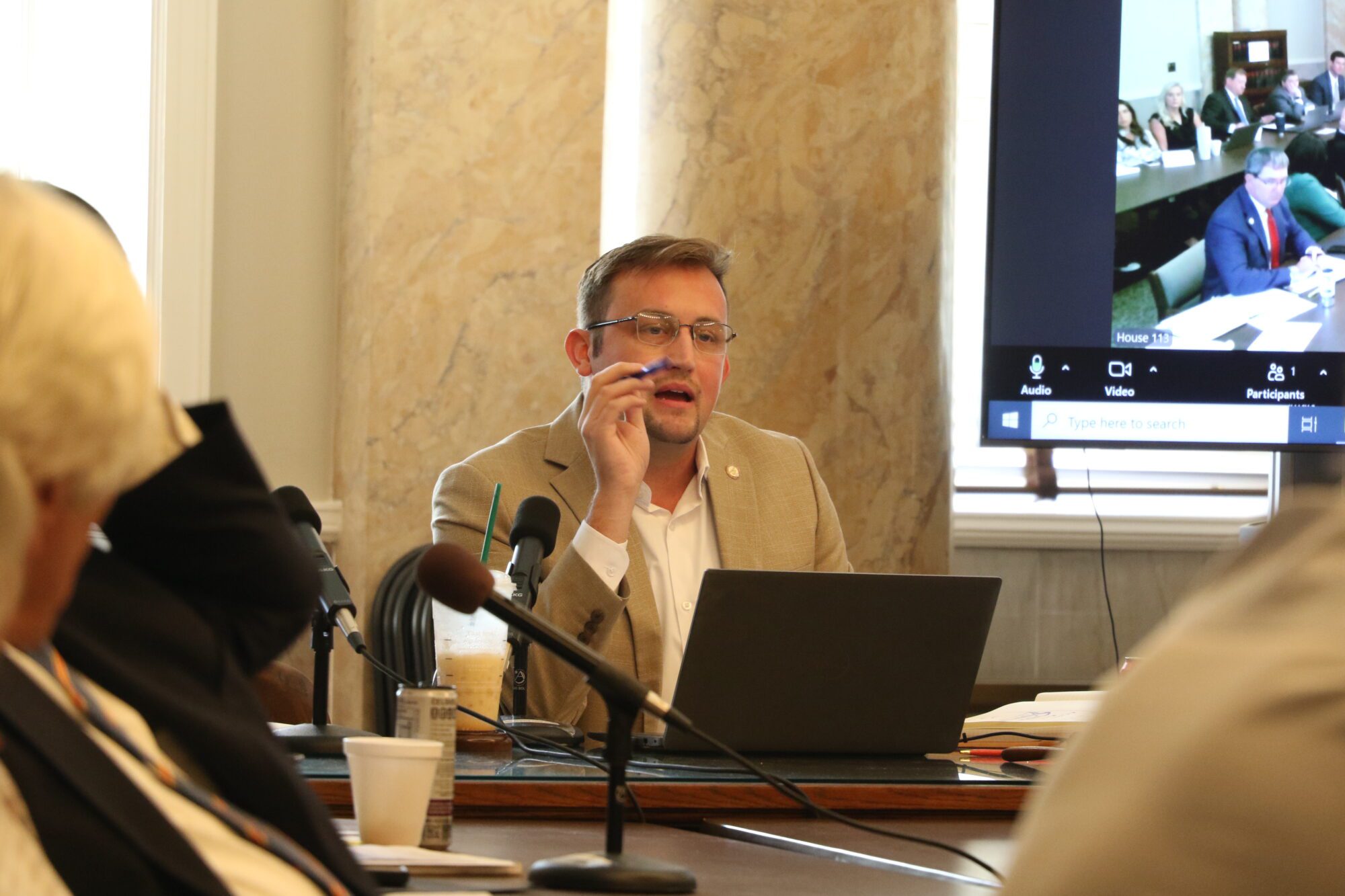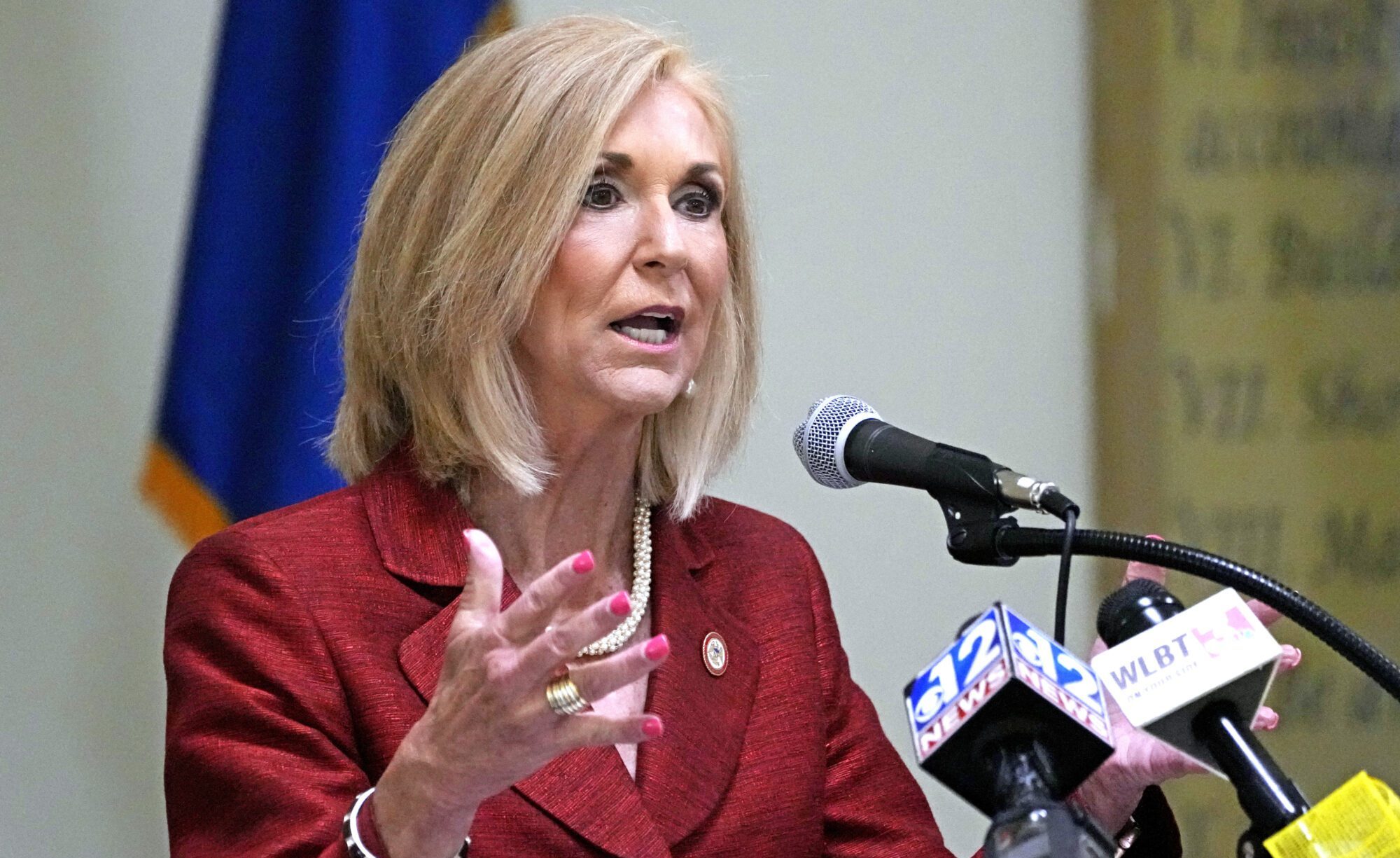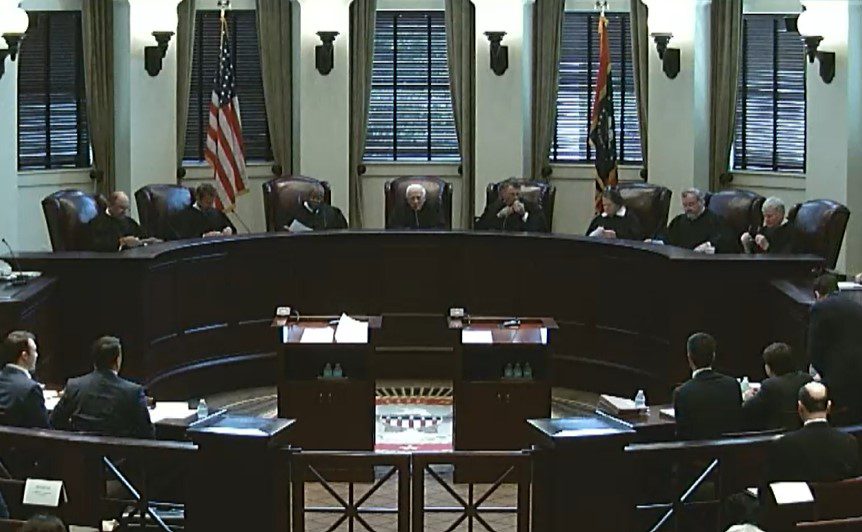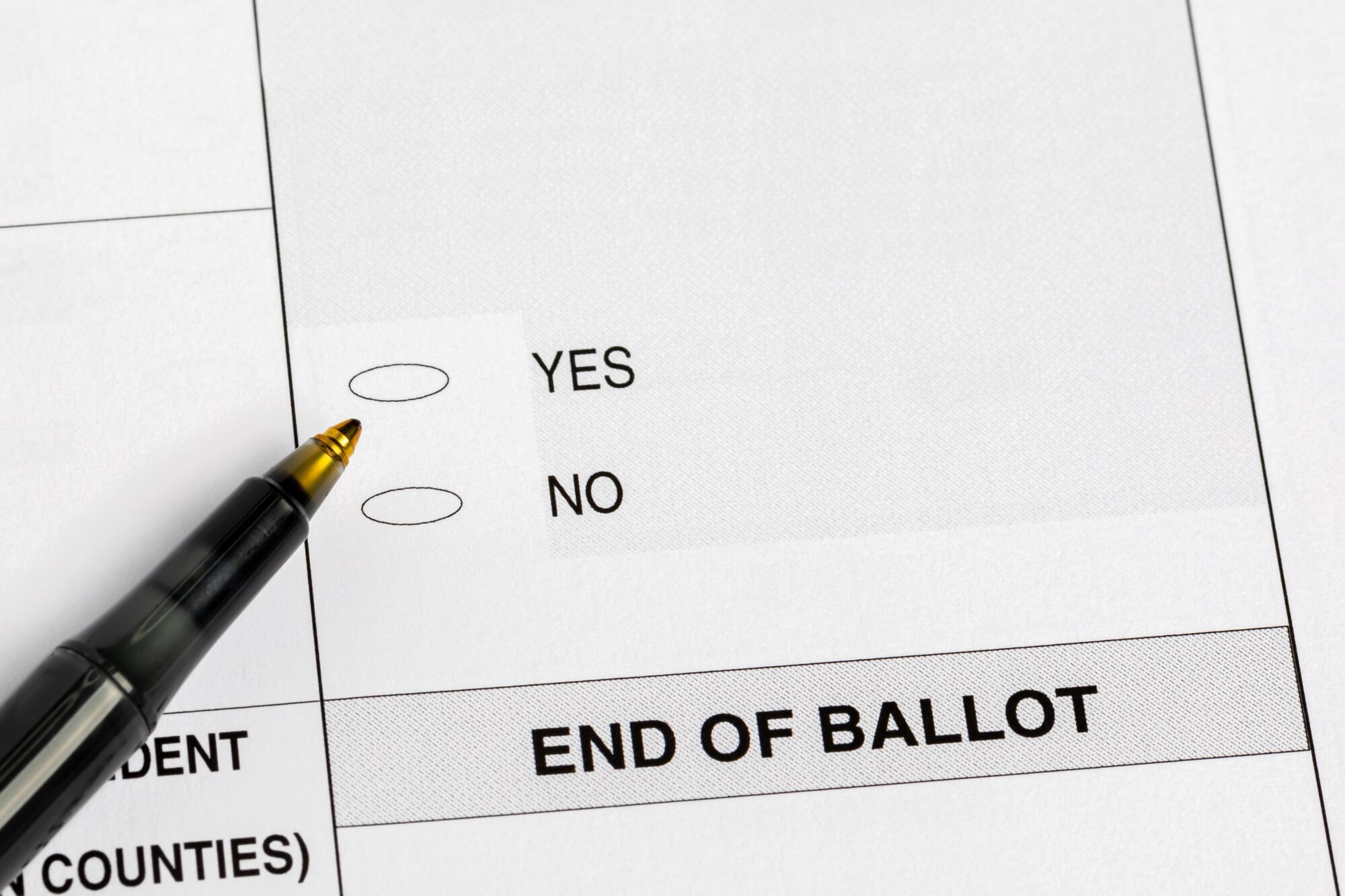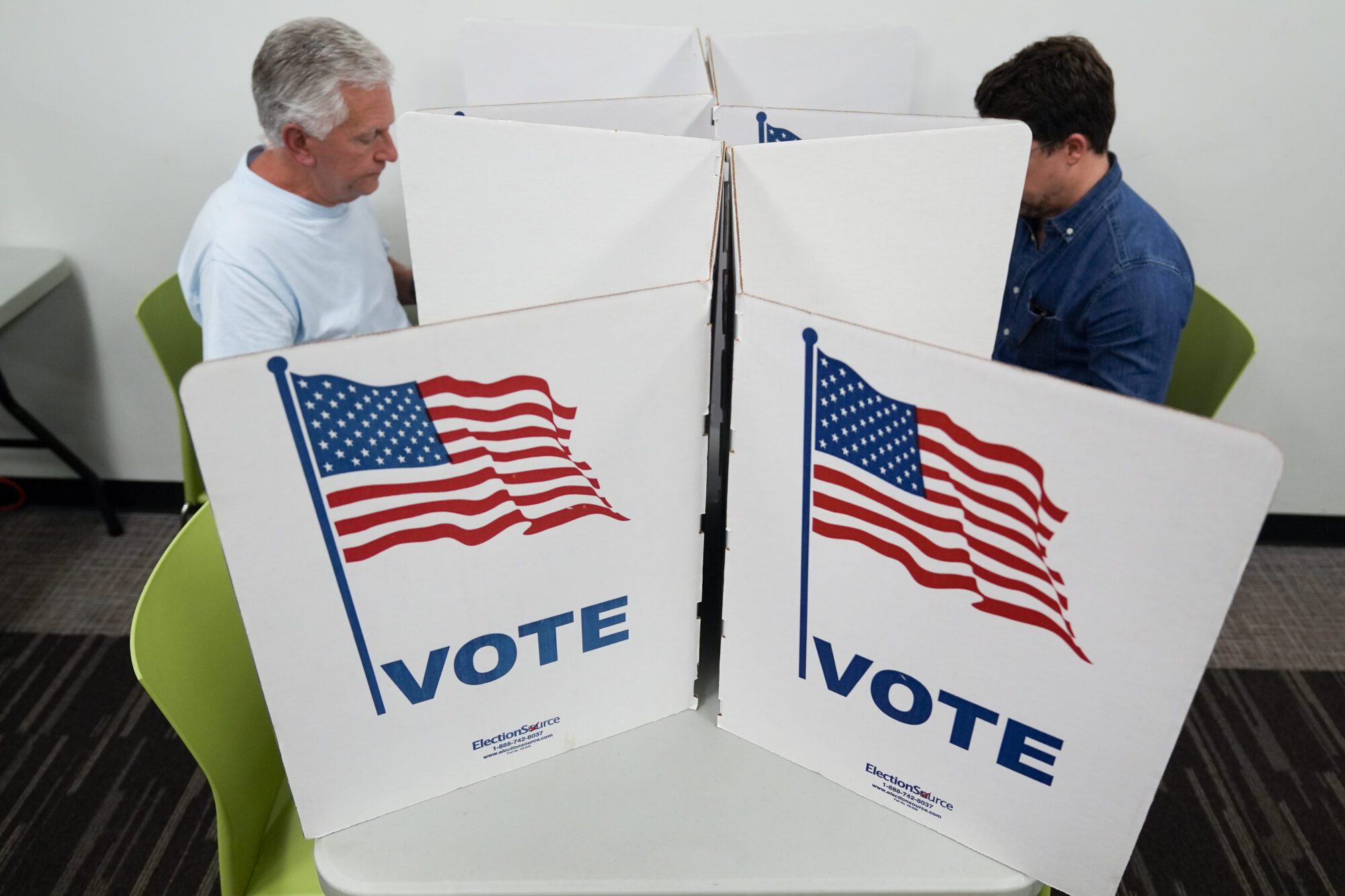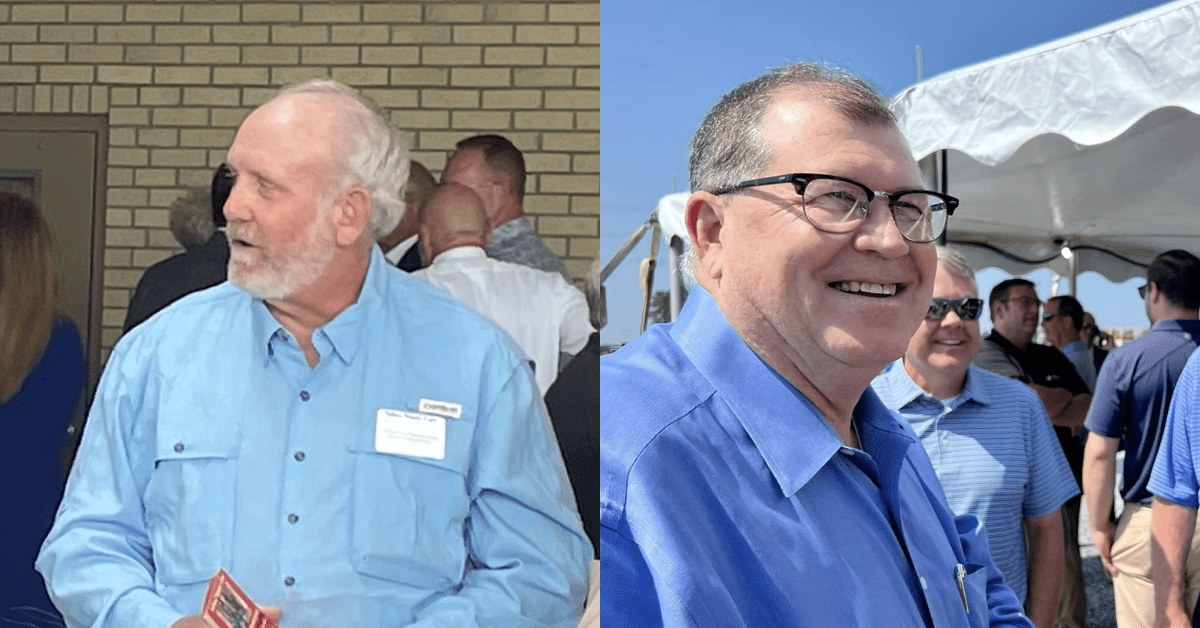
Nelson Wayne Carr (left) and Dane Maxwell (right)
Incumbent Southern District Public Service Commissioner Dane Maxwell is being challenged by Nelson Wayne Carr in the August 8th Republican Primary. See what the two have to say about utility rates, energy sources, and ratepayer advocacy.
The race for Southern District Public Service Commissioner will be decided in the Republican Primary on August 8th. Incumbent first term Commission Chairman Dane Maxwell is being challenged by political newcomer Nelson Wayne Carr in the South Mississippi contest.
No Democrats filed to run for Southern District PSC Commissioner.
Maxwell, the former Mayor of Pascagoula, won the Public Service Commission seat in 2019. He defeated one opponent in the GOP Primary by 36 points before besting the former Mayor of Ocean Springs, Democrat Connie Moran, in the General Election by over 25 points.
Maxwell went on be elected Chairman of the three-man Public Service Commission for this term.
Carr, a contractor and developer, threw his hat in the political ring for the first time when he qualified for this race.
About the Candidates
DANE MAXWELL
Political Experience:
- Incumbent Southern District Public Service Commissioner
- Chairman, Mississippi Public Service Commission
- Former Mayor, City of Pascagoula
Employment:
- Business owner
- Retired Law Enforcement Officer
NELSON WAYNE CARR
Political Experience:
- None
Employment:
- Developer
- Contractor
Question/Answer with the Candidates
Magnolia Tribune asked each candidate the same questions pertaining to hot button issues related to the Mississippi Public Service Commission (PSC). Below are their responses in full.
What is your view of how Commissioners should consider rate cases coming before the PSC from the regulated utilities?
MAXWELL
The Commission is charged with establishing rates that are just and reasonable. For our major utilities, we utilize Formula Rate Plans that adjust rates periodically. During those evaluations, the Commission and the Mississippi Public Utilities Staff work to ensure that costs incurred by the utilities are reasonable and necessary for the provision of their respective utility services.
As a regulator, our objective is to align the behavior and endeavors of our regulated utilities with the public interest. Stated differently, it is our job to establish a standard of utility service and hold the utilities accountable. When considering rate cases, and yes, rate increases, it is our job to ensure that dollars spent by the utilities are in pursuit of meeting the standards established by the Commission. As we demand a more reliable and resilient electric generating fleet and grid, a safer natural gas distribution system, and cleaner water and wastewater systems across the state, it is imperative that we exercise diligence to ensure that every dollar is spent in pursuit of meeting the standards established by the Commission and in furtherance of promoting the public interest.
CARR
First, I would like to point out that there are different factors that determine rate calculations for electric, gas, water and telecommunication providers.
Our Electric companies are required to submit yearly reports that then determine the rates that they may charge. Some of the factors include the cost of fuel, extreme weather events that required repairs to their infrastructure, and grid enhancements, all passed through to the customers and factored into the rates. So, for our electric companies, the rates are based on historical data and predictions for the future needs that base the rate.
For Water and Sewer, our providers are mostly rural companies with aging infrastructure. Currently, we have an out of state company, Great River Utility, coming in and purchasing many water and sewer companies, bringing them up to EPA standards but also raising the customer rates by as much as 4 times their old rate. While we need to improve our rural water and sewer utilities, I would want to take a closer look at the future of Mississippi Water in the hands of a company that is backed by a NYC hedge fund.
The federal government has released fifty billion dollars for infrastructure funds to improve water quality through their infrastructure bills, but the rural communities have been left out. Commissioners must consider all relevant factors in rate cases. I have named a few above. Commissioners are bound by what the law requires both of commissioners as well as the PSC at large, but also of utility companies.
In your view, how does solar play into the energy market in Mississippi?
MAXWELL
Utility Scale Solar has a role to play, but it is important that the integration of solar energy into the state does not have a detrimental effect on reliability or place unnecessary upward pressure on rates. In my 3 plus years as Chairman of the Commission, we have undertaken Entergy Mississippi and Mississippi Power Company’s first Integrated Resource Plan (IRP) cycle. The Commission’s IRP Rule is the process we use to ensure the utility’s generating fleet is meeting customer demand and following least cost resource principles. As I mentioned earlier, solar has a role to play but it is limited. Due to its intermittent nature, that is it cannot be dispatched like fossil fuel generating facilities, solar cannot serve as a base load fuel source.
What I do not support, and my record is clear, is policies promoting Net Metering. Last year, the Commission passed an updated Net Metering Rule that I did not support. The Rule and accompanying policies promote residential customers putting solar panels on their roofs and being compensated by the utility for excess generation at an inflated price; this inflated price is paid by everyone else. I have no issue with any Mississippian wanting to put solar panels on their roof. What I take issue with is everyone else having to pay more on their electric bill to improve the economics of their neighbor’s investment. I have and will continue to stand against these subsidies that result in higher electric bills.
CARR
Solar will have an increasing role in our Mississippi energy market. As technology improves and we learn how to store solar energy in batteries, it is becoming increasingly more reliable and affordable. Net metering is one way for customers to save on their utility bills, and there are customer incentives offered for that. There are a lot of Solar companies wanting to do business in Mississippi right now which promote competition.
In Docket No: 22-AD-07 interested Solar Companies were to file proposals or plans related to low-income communities and public entities where public lands are owned with strict guidelines. These guidelines include ‘Adherence with the Hire Mississippi Rule; Provide robust economic development opportunities; Provide quality employment and workforce development opportunities for Mississippi; Provide appropriate incentives and benefits for participation; Create market opportunities of private sector project development; and Provide for strong consumer protections, truth in billing, and provide for regulatory inspection of project performance and benefits.’
What is your position on the use of coal by the regulated utilities?
MAXWELL
First and foremost, I support least-cost resource planning. This ensures our utility’s electric generating fleets are built to provide maximum benefits for ratepayers. I also believe in fuel diversity, which can protect ratepayers in times of volatile fuel prices. As I mentioned earlier, these factors and considerations play out in the Commission’s Integrated Resource Planning Rule.
As an economic regulator, I support all resources, coal included. What I don’t support are federal policies that have negatively impacted the economics of coal as a resource type. For decades, the federal government, through Congress and the Environmental Protection Agency, have initiated a war on coal. Federal policies have detrimentally impacted the economics of coal as a resource type. Utilities and regulators alike are tasked with evaluating increased environmental compliance costs for coal generating facilities. These costs are ultimately passed on to ratepayers. Again, I support all resource types, coal included. It is just a shame the federal government decided to put its finger on the scale in favor of other resource types and to the detriment of coal.
CARR
The Environmental Protection Agency of the federal government is at war with coal. There are strict mandates that must be adhered to, and a timeline in place for compliance. Coal is a stable, reliable, affordable, sustainable fuel option. When solar and wind are not reliable, and gas price fluctuates often, it is a good option to have coal. I understand it is more expensive to operate a coal facility that is only needed as a backup, in an emergency, and that is why the Mississippi Power Company opted to close its coal fire plant at Plant Daniel. In this case, energy from Plant Daniel Coal plant cost was not justified when they have more affordable options and generate more energy than Mississippi customers currently use.
Would you support setting up an office of a consumer advocate to be a watchdog for ratepayers?
MAXWELL
It’s important to note that in Mississippi, we elect Public Service Commissioners. We are directly accountable to the ratepayers, and in my 3 plus years as Chairman of the Commission, I would state that I have served as a “watchdog” for the ratepayers of the Southern District. We also have the Mississippi Public Utilities Staff. The Staff is a separate agency that serves as an advisor to the Commission but also serves as a party in major cases before the Commission. The Staff serves a vital role in the state’s regulatory framework, and I think ratepayers are at the center of every decision we make.
It is also worth noting that the Mississippi Attorney General’s Office, Consumer Protection Division has appeared before the Commission in numerous dockets and performs this function. I am not opposed to exploring the idea of a separate consumer advocate specific to utility regulation in the state. That being said, I do not support growing government when the desired function is already being performed or has the ability to be performed by an existing agency.
CARR
The consumer advocate responsibility has been given to the PSC. It is a balancing act, protecting the consumer from exuberant utility rates while also allowing the utility companies to be profitable enough to cover their expenses, plan for expansion, and make a profit for their shareholders. A strong Utility company is better able to serve their customers. We will need to do a better job of informing the customers that they may file complaints and the complaints will be investigated by the commission staff, and public hearings will be held so that the customers may be heard. I understand that Mr. Maxwell as Chairman of the PSC has put a time limit of three minutes to hear from customers during hearings. I think that they should be allowed more time to be heard, especially since they travel from all over the state to Jackson, and that alone may be a hardship for seniors and fixed income families.
The main consumer concern I have is for rural water and sewer customers. Their water companies are aging and need to be brought up to EPA standards, which is expensive. Great River Utility, a Missouri company, is buying up many water companies in rural Mississippi, and raising their rate by as much as four times. There are millions of dollars in federal funds allocated to Mississippi, much of it for water and sewer upgrades, that need to be monitored and allocated in a fair and transparent manner. It would be a shame for an out of state company to take the funds allocated to Mississippi back to Missouri.
How will you work with the regulated utilities to ensure grid stability and proper maintenance?
MAXWELL
Over the last 3 plus years as Chairman of the Commission, I have worked with Entergy Mississippi and Mississippi Power Company to ensure we have a safe, reliable, and resilient electric generating fleet and grid. The Commission has well established processes and filing requirements that provide visibility into what our utilities are doing to ensure the grid is reliable and properly maintained.
Entergy Mississippi and Mississippi Power Company file Annual Energy Delivery Plans that detail their efforts and investments related to grid reliability and resiliency, and vegetation management. The Commission and the Mississippi Public Utilities Staff review these filings to ensure the utility’s efforts are consistent with best practices and industry standards.
During this term, the Commission worked with Entergy Mississippi on a program called “Resiliency Ramp Up” which accelerated the replacement of wooden structures on the utility’s transmission system with concrete or steel structures. This program will result in a more reliable transmission network for Entergy. In light of more frequent extreme weather events, the Commission will continue to discuss with our utilities what more can be done to decrease outage minutes and improve restoration times. No different than considering rates, from a reliability and resiliency standpoint, it is our job to establish a standard of utility service and hold the utilities accountable.
CARR
Our grid is the largest machine in the United States, crossing state and country lines. There are many owners of the grid, many users of the grid, we are all customers of the grid. It was designed and built over decades as our nation grew and expanded. We take the grid for granted, but now it is imperative that we look into the future and be very deliberate about how to maintain, secure and upgrade our grid.
As an electrician by trade and a developer, I understand the complexities of adding onto the grid. It was not originally designed for Solar and wind generation, but we have experts in the Utility and Energy field that are making that happen. The best plan will benefit all customers with reliability, affordability, transparency and efficiency.
However, if the grid is going to be overloaded as the federal government forces the transition from gasoline to electric vehicles, and the overwhelming burden that change will force on grids nationwide, then we need to look at modular nuclear power units that can be built closer to where end users are. I will work with all regulated utilities to ensure we have done all we can do for the future of Mississippi.
#####
Magnolia Tribune has asked similar questions of the candidates seeking Public Service Commissioner seats in the Central and Northern Districts. The responses from the Central District candidates can be read here while the responses from the Northern District candidates can be read here.


